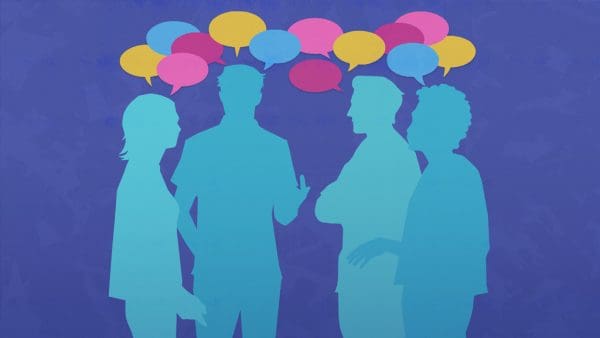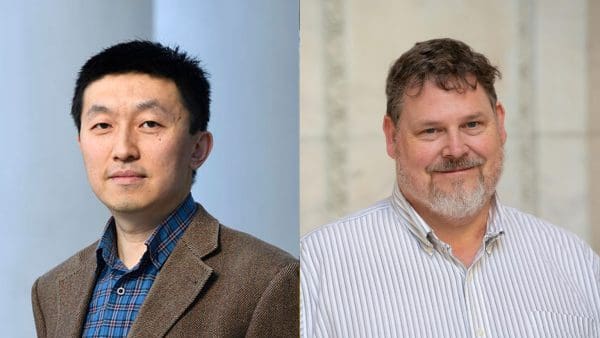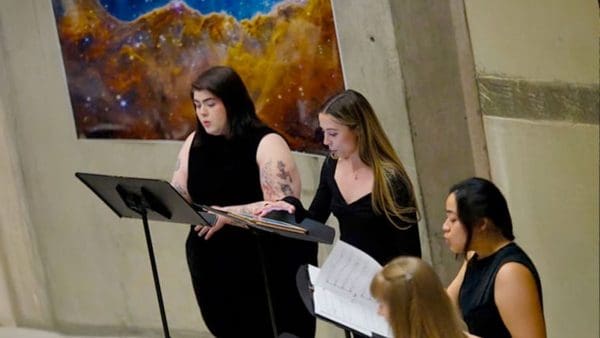With its estimated 100 billion nerve cells, 2 million miles of axons, and 1 million billion synapses, the human brain is the most complex structure on Earth. Understanding how the brain sustains the mind is one of the last frontiers of modern science. Predicting the future of brain research is a daunting proposition.
Will the big discoveries of the next decade be in understanding the brain’s low-level neural assemblies, or in the comprehension of higher-level functions like language processing? Which new research techniques and methods show the greatest promise? And what will be the best way to train future generations of scientists?
These are just some of the questions that Krieger School faculty and students came together to consider at a two-day seminar in December, which brought 10 of the top cognitive and brain scientists in the nation to Homewood to share their thoughts about new directions in the field.
The Futures Seminar in the Brain Sciences was the seventh in a series of 27 such seminars taking place throughout the Krieger School as part of the school’s strategic planning process. It was sponsored by the Department of Cognitive Science, the Department of Psychological and Brain Sciences, the Zanvyl Krieger Mind/Brain Institute, and the undergraduate neuroscience program.
The seminar drew more than 150 people to the Mason Hall Auditorium, including faculty and students from the organizing units as well as colleagues from such departments as biology, physics, and biophysics. The experience of bringing scholars together to discuss the future of their field was a valuable one, says Barbara Landau, chair of the Department of Cognitive Science and one of the event’s organizers.
“Everybody tends to be very focused on what’s going on in their lab or in their department,” says Landau, “and this made us all much more aware of how much is going on outside our labs and departments and what people consider to be areas for future growth, investment and discovery.”
That’s exactly what Katherine Newman, the James B. Knapp Dean of the School of Arts and Sciences, envisioned when she conceived the Futures Seminars last year: an opportunity for members in all of the school’s departments and programs to engage top experts in their fields and create a comprehensive roadmap for research, teaching, and interdisciplinary collaboration to guide them in the years ahead.
About the Futures Seminars
The Futures Seminars in the Krieger School of Arts and Sciences bring together faculty and students from across the school with internationally distinguished scholars to discuss how their disciplines will unfold in the coming decades and to stimulate new ideas for future development.
Launched in September 2010, the seminars are the first step in a four-part strategic planning process that will span every unit of the school over the next two academic years. During the fall of 2010, 10 departments and programs including classics, film and media studies, the Humanities Center, anthropology, and history convened for their seminars. During 2011, 20 departments and programs will hold their Futures Seminars, including earth and planetary sciences, biology, philosophy, English, and the Center for Africana Studies.
“Over the next decade there is going to be a lot of change in the arts and sciences,” Newman says. “We have possibilities for growth in the faculty as we think about how to better serve our students. The question of what direction each of our constituent fields should be moving in is important to ask in a thoughtful and critical way—so that when we make these crucial investments we are doing so with the full knowledge that we have deliberated and sought the counsel of peers and colleagues at other universities and given the most serious considerations to the different options we might pursue.”
The Futures Seminars are just the first step in the school’s four-part strategic planning process. After each seminar, organizers compile a white paper or vision statement summarizing the state of their field, current strengths and challenges they face, and proposals for future growth. A visiting committee of distinguished faculty from leading universities then comes to campus to meet with faculty and students in each department and program and make recommendations.
At Hopkins, where studies of the brain and cognition reach across many departments, disciplines, and campuses, the brain sciences have long been an important area of research and teaching. The first psychological laboratory in the United States was founded at Hopkins in 1883, and faculty members such as Vernon Mountcastle and Solomon Snyder pioneered the field of neuroscience in the 1960s. Today neuroscience is the third most popular undergraduate major at the School of Arts and Sciences, and one fifth of the school’s undergraduates major in the study of psychology, cognition, and the brain.
But brain and cognition scientists at Homewood face a number of challenges today, including limited resources for teaching and research, a need for stronger interdisciplinary relationships, and a need for increased funding so that labs can expand to make the most of new techniques and methodologies. In the future, Landau says she would like to see the creation of an institute for functional brain theory that would bring together investigators from across disciplines to study the functions of the mind and brain, using a problem-centered approach.
Ed Connor, professor of neuroscience and director of the Zanvyl Krieger Mind/Brain Institute, and Steven Yantis, chair of the Department of Psychological and Brain Sciences, are also looking ahead. They’d like to see a focus on hiring new researchers whose work will strengthen existing areas of cognitive psychology and neuroscience research. Also on their list: development of research infrastructure and core facilities, such as a building that would bring cognitive and brain scientists at Homewood together under one roof.
No matter what the future of the brain sciences at the Krieger School will look like, Yantis is certain it will be bright. “This is an amazingly robust and fruitful area of science right now,” he says, “and we are excited about what’s going to be happening over the next 10 years and how Hopkins can continue to be a leader in it.”




